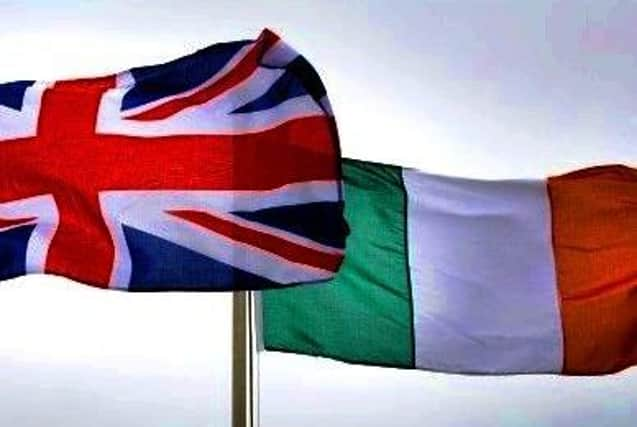The decline of Protestants in Ireland was due to many factors other than discrimination


Jim Allister (September 22) and now Prof John Wilson Foster (Sep 24) have addressed the position of Protestants in the Free State/Republic, of which I am one.
Mr Allister claims that: “The fact that the Catholic population in Northern Ireland has flourished presents a telling contrast with the near-extinction of the Protestant population in the Republic.”
Advertisement
Hide AdAdvertisement
Hide AdProf Foster has a similar comment : “Over the past century, the Republic of Ireland has not been just a cold house for Protestants, but a virtual igloo. Through a covenant between the Catholic Church and the state, a Protestant population of 10% in 1922 fell to 3% by 1990 with a slight rise to 4% in our day.”


Leaving aside the contentious comment that northern Catholics “flourished” in the decades of Stormont rule, there is no denying that the Protestant population in the Free State/Republic declined precipitously after independence.
This was the result of many factors. Emigration was important — the new state was an impoverished place, and economic insecurity and depression doubtless encouraged many relatively well-educated and mobile Protestants to up sticks and go.
Distaste with the Irish Free State’s rather cloying Catholic ethos, some intimidation and a low marriage and birth rate were all factors.
Advertisement
Hide AdAdvertisement
Hide AdA significant issue was that of mixed marriages, but the pernicious Ne Temere decree can’t really be characterised, as Professor Foster seems to do, as “a covenant between the Catholic Church and the state” to apparently decrease the Protestant population. That decree existed before independence. It never had the force of law. This wasn’t genocide or ethnic cleansing. Mixed marriages were often family-splitting and traumatic up to the 1970s but they didn’t kill anyone, just shifted the denominational labels.
On July 21 1922 the Church of Ireland Gazette, speaking of the new political dispensation in the south, declared that ‘we are Irish and Ireland is our home’. Most Protestants were happy to stay at ‘home’ if they could. The state wisely left this relatively prosperous minority in largely undisturbed possession of their separate schools, a university, hospitals, firms and farms. And those who wanted to live a quiet ‘Britishness’ could do so in the Protestant privacy of their churches, freemasonry, their sporting and dining clubs, the Orange Order and in their very lively social support structure.
They occasionally grumbled about the new state’s restrictive laws on censorship, but many were quite happy not to see their servants exposed to licentious literature. Apart from crusading newspaper editors and an advanced liberal elite, Protestants were often as conservative as their Catholic neighbours and had no particular problem with the new rules on liquor trading and contraception (and these could be avoided, anyway).
In that regard Prof Foster might note that Yeats’ 1925 speech on divorce was received with horror on much of the Protestant side — the Protestant churches disapproved of it, too.
Advertisement
Hide AdAdvertisement
Hide AdIf there was a significant grievance that exercised Protestant minds it was Irish language compulsion. The minority did not particularly see its symbolism of nationhood in the same way as nationalists did. It was resented as a backdoor way of keeping Protestants out of the public service and because the time it occupied in school was seen as a brake on their children’s progress in the modern world. But it must be said that this was not a particularly Protestant gripe — many Catholics were equally disenchanted with an expensive, inefficient and ultimately wholly unsuccessful policy.
Southern Protestants did not always lead an ideal existence — low-level slights and intimidation were by no means unknown (this writer can attest to that).
But compared to the discrimination, violence and bigotry that often seemed to characterise parts of northern society, never mind the sort of pogroms that afflicted other European minorities after World War I, they didn’t do badly. To represent them as cowed, institutionally discriminated against and of no consequence to the southern state is not borne out by the evidence.
The real tragedy in all this was partition, as recognised at the time by the Church of Ireland Gazette. An all-Ireland Dominion, with the King as head of state and a deep cultural, fiscal and economic connectivity with Britain, would have had in it a substantial ‘blocking’ minority. The state that would have emerged would almost certainly have been a compromise, but one which would, I believe, have led to an island much more diverse, less paranoid and comfortable in its own skin.
Ian d’Alton,
Naas, Co Kildare (Co-editor, with Dr Ida Milne, of Protestant and Irish: the minority’s search for place in independent Ireland, 2019)